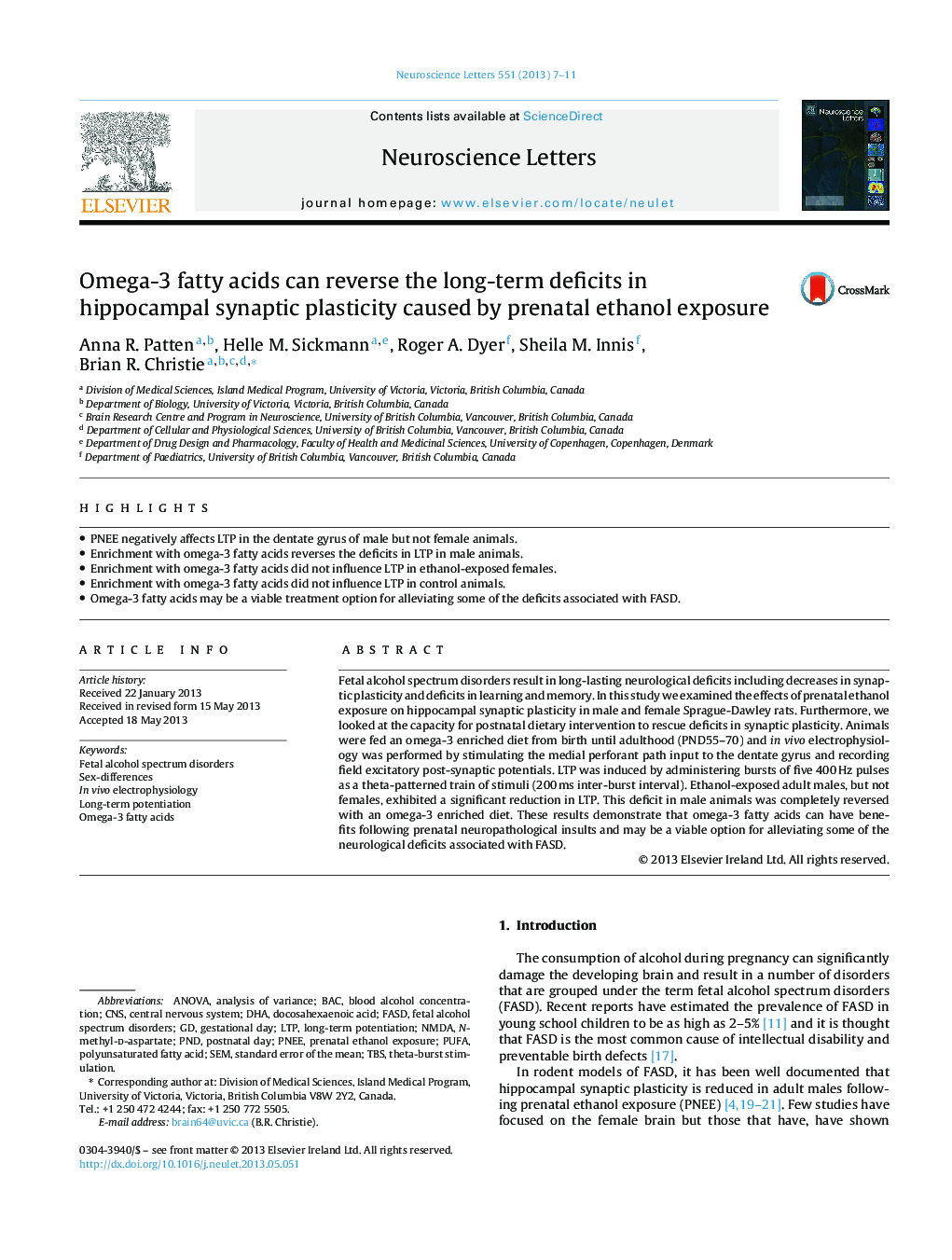| Article ID | Journal | Published Year | Pages | File Type |
|---|---|---|---|---|
| 6282729 | Neuroscience Letters | 2013 | 5 Pages |
Abstract
Fetal alcohol spectrum disorders result in long-lasting neurological deficits including decreases in synaptic plasticity and deficits in learning and memory. In this study we examined the effects of prenatal ethanol exposure on hippocampal synaptic plasticity in male and female Sprague-Dawley rats. Furthermore, we looked at the capacity for postnatal dietary intervention to rescue deficits in synaptic plasticity. Animals were fed an omega-3 enriched diet from birth until adulthood (PND55-70) and in vivo electrophysiology was performed by stimulating the medial perforant path input to the dentate gyrus and recording field excitatory post-synaptic potentials. LTP was induced by administering bursts of five 400Â Hz pulses as a theta-patterned train of stimuli (200Â ms inter-burst interval). Ethanol-exposed adult males, but not females, exhibited a significant reduction in LTP. This deficit in male animals was completely reversed with an omega-3 enriched diet. These results demonstrate that omega-3 fatty acids can have benefits following prenatal neuropathological insults and may be a viable option for alleviating some of the neurological deficits associated with FASD.
Keywords
NMDAPNDTBSFASDN-methyl-d-aspartateBACSex-differencesFetal alcohol spectrum disordersdocosahexaenoic acidOmega-3 fatty acidsPolyunsaturated fatty acidPUFAIn vivo electrophysiologyanalysis of varianceANOVAlong-term potentiationLTPstandard error of the meanCNSDHAgestational daypostnatal daycentral nervous systemBlood alcohol concentrationPrenatal ethanol exposureSEM
Related Topics
Life Sciences
Neuroscience
Neuroscience (General)
Authors
Anna R. Patten, Helle M. Sickmann, Roger A. Dyer, Sheila M. Innis, Brian R. Christie,
